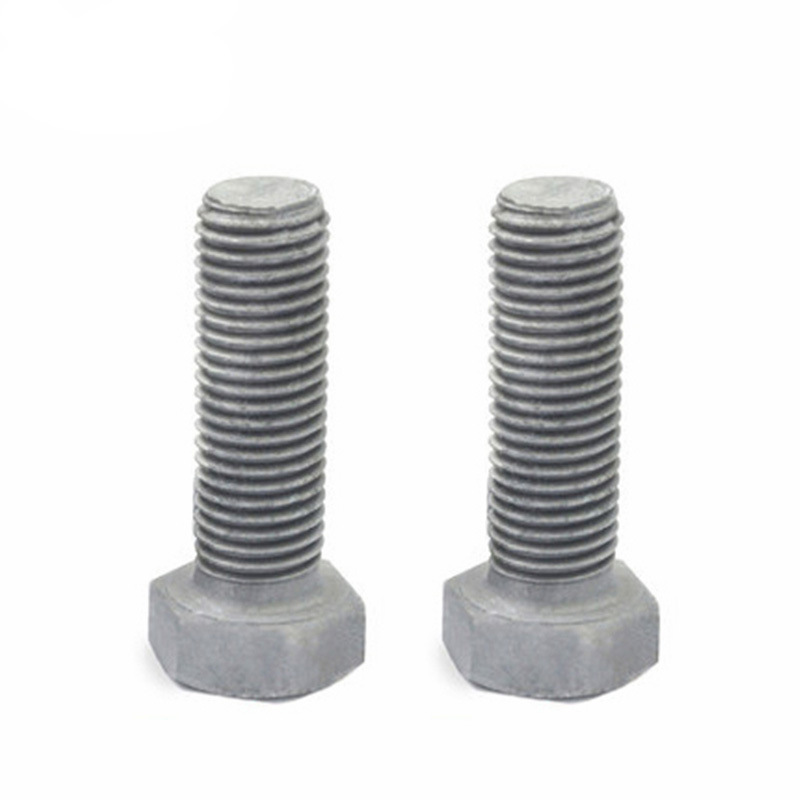

hexagon self tapping screw
Dec . 29, 2024 11:36 Back to list
hexagon self tapping screw
Understanding Hexagon Self-Tapping Screws Features and Applications
Hexagon self-tapping screws are an essential fastener in various industrial and construction applications. With a unique design that allows for efficient fastening without the need for pre-drilling, these screws have become a staple in many fields. This article will explore the features, advantages, and typical applications of hexagon self-tapping screws to provide a comprehensive understanding of their importance.
Features of Hexagon Self-Tapping Screws
The distinguishing characteristic of hexagon self-tapping screws is their head shape, which resembles a hexagon. This design offers several benefits. Firstly, it allows for easier and more efficient torque application when using wrenches, ensuring a secure fit. The hex head provides a better grip compared to slotted or Phillips heads, reducing the likelihood of stripping during installation.
These screws are often made from high-strength materials such as carbon steel, stainless steel, or alloy steel, making them suitable for demanding applications. The self-tapping feature enables them to create their own hole as they are driven into materials like metal, plastic, and wood, which simplifies assembly processes.
The screw threads are specially designed to enhance this self-tapping capability. They form tightly with the material, ensuring a secure hold that resists loosening due to vibrations or movements. This makes hexagon self-tapping screws an ideal solution for applications requiring durability and stability.
Advantages
One of the primary advantages of using hexagon self-tapping screws is the time-saving aspect during assembly. Since they can penetrate materials without pre-drilling, assembly lines can operate more efficiently, leading to increased productivity. Additionally, they reduce labor costs, as fewer tools are needed and less time is spent on preparation.
hexagon self tapping screw

Another significant benefit is their versatility. Hexagon self-tapping screws come in various sizes, lengths, and materials, allowing them to be adapted to different projects. They can be used in thin sheets or thick materials, making them suitable for everything from automotive manufacturing to home construction.
Furthermore, the locking mechanism provided by the screw threads contributes to a secure and reliable fastening solution. This is particularly important in applications where safety and performance are critical, such as in infrastructure development or automotive assembly.
Applications
The applications of hexagon self-tapping screws are vast and varied. In the automotive industry, they are commonly used to fasten parts together within the vehicle chassis or body. Their ability to withstand vibrations makes them particularly suited for this high-demand environment.
In the construction sector, these screws are utilized in metal framing, HVAC installation, and roofing. They provide quick and secure connections, which is essential in large-scale projects where time efficiency is paramount. Additionally, their corrosion-resistant variants are ideal for outdoor applications or environments exposed to moisture.
Manufacturers of household appliances and electronics also rely on hexagon self-tapping screws for assembly, thanks to their reliability and ease of use. Whether securing components in a washing machine or assembling a computer case, these screws play a crucial role in ensuring the durability of end products.
Conclusion
Hexagon self-tapping screws represent a significant innovation in the world of fasteners. Their efficiency, strength, and versatility make them a preferred choice across various industries. By understanding their features, advantages, and applications, businesses can optimize their assembly processes, improve safety standards, and achieve better overall performance in their projects. Choosing the right fastener is essential for the integrity and longevity of any construction or manufacturing endeavor, and hexagon self-tapping screws are undoubtedly a valuable asset in achieving these goals.
Latest news
-
High-Strength Hot Dip Galvanized Bolts - Hebei Longze | Corrosion Resistance, Customization
NewsJul.30,2025
-
Hot Dip Galvanized Bolts-Hebei Longze|Corrosion Resistance&High Strength
NewsJul.30,2025
-
High-Strength Hot-Dip Galvanized Bolts-Hebei Longze|Corrosion Resistance&High Strength
NewsJul.30,2025
-
Hot Dip Galvanized Bolts-Hebei Longze|Corrosion Resistance&High Strength
NewsJul.30,2025
-
Hot Dip Galvanized Bolts - Hebei Longze | Corrosion Resistance, High Strength
NewsJul.30,2025
-
High-Strength Hot Dip Galvanized Bolts-Hebei Longze|Corrosion Resistance, Grade 8.8
NewsJul.30,2025

